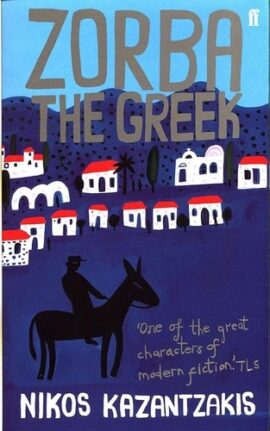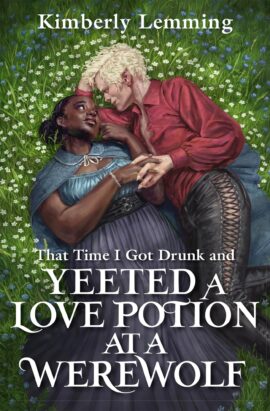«Conversations with Friends: Now on BBC Three and iPlayer» a été ajouté à votre panier. Voir le panier
1Q84: The Complete Trilogy
2.800,00 د.ج
The year is 1Q84. This is the real world, there is no doubt about that. But in this world, there are two moons in the sky. In this world, the fates of two people, Tengo and Aomame, are closely intertwined. They are each, in their own way, doing something very dangerous. And in this world, there seems no way to save them both. Something extraordinary is starting.
10
Items sold in last 3 days
Félicitation ! vous bénéficiez d'une livraison gratuite !
0
People watching this product now!
Estimated delivery dates: avril 22, 2025 – avril 29, 2025
Catégorie : Fiction
Description
The year is 1Q84. This is the real world, there is no doubt about that. But in this world, there are two moons in the sky. In this world, the fates of two people, Tengo and Aomame, are closely intertwined. They are each, in their own way, doing something very dangerous. And in this world, there seems no way to save them both. Something extraordinary is starting.
Informations complémentaires
| Editeur |
|---|
Produits similaires
Zorba the Greek
2.100,00 د.ج
Set before the start of the First World War, this moving fable sees a young English writer set out to Crete to claim a small inheritance. But when he arrives, he meets Alexis Zorba, a middle-aged Greek man with a zest for life. Zorba has had a family and many lovers, has fought in the Balkan wars, has lived and loved - he is a simple but deep man who lives every moment fully and without shame. As their friendship develops, the Englishman is gradually won over, transformed and inspired along with the reader.
Zorba the Greek, Nikos Kazantzakis' most popular and enduring novel, has its origins in the author's own experiences in the Peleponnesus in the 1920s. His swashbuckling hero has legions of fans across the world and his adventures are as exhilarating now as they were on first publication in the 1950s.
Zorba the Greek, Nikos Kazantzakis' most popular and enduring novel, has its origins in the author's own experiences in the Peleponnesus in the 1920s. His swashbuckling hero has legions of fans across the world and his adventures are as exhilarating now as they were on first publication in the 1950s.
That Time I Got Drunk And Yeeted A Love Potion At A Werewolf
2.300,00 د.ج
Anyone else ever thrown a drink at someone's head, only to miss entirely and hit a stranger behind them? Then have that stranger fall madly in love with you because it turned out that drink you threw was a love potion? No, just me? Well damn.Dealing with a pirate ship full of demons that just moved into town was hard enough. Now on top of it, I have to convince a werewolf that I'm not his fated mate, he's just drugged. Easier said than done.Though I have to say, having a gorgeous man show up and do all of your chores while telling you you're beautiful isn't the worst thing to happen to a girl.
How To Change Your Mind: The New Science Of Psychedelics
2.990,00 د.ج
The No.1 New York Times Bestseller'Gripping and surprising ... Pollan makes losing your mind sound like the sanest thing a person could do' The New York Times Book ReviewCould psychedelic drugs change our worldview? Join Michael Pollan on a journey to the frontiers of the human mind.Diving deep into an extraordinary world - from shamans and magic mushroom hunts to the pioneering labs mapping our brains - and putting himself forward as a guinea-pig, Michael Pollan has written a remarkable history of psychedelics and a compelling portrait of the new generation of scientists fascinated by the implications of these drugs. How to Change Your Mind is a report from what could very well be the future of consciousness.'A sweeping and often thrilling chronicle of the history of psychedelics, all interwoven with Pollan's adventures as a psychedelic novice. This is a serious work of history and science, but also one in which the author, under the influence of toad venom, becomes convinced he's giving birth to himself' Oliver Burkeman, Guardian'A mind-altering book ... full of transformations' Richard Godwin, Evening Standard'An irresistible blend of history, research and personal experience. In terms of the psychedelic wave, the book is the big kahuna, the Big Bang moment for a movement that is gathering force' John McKenna, Irish Times'Entertaining and engrossing' Paul Laity, Financial Times'Deeply absorbing, wise and beautifully written' Mick Brown, Literary Review'An astounding book' Andrew Sullivan, New York Magazine
How To Change Your Mind: The New Science Of Psychedelics
2.990,00 د.ج
The No.1 New York Times Bestseller'Gripping and surprising ... Pollan makes losing your mind sound like the sanest thing a person could do' The New York Times Book ReviewCould psychedelic drugs change our worldview? Join Michael Pollan on a journey to the frontiers of the human mind.Diving deep into an extraordinary world - from shamans and magic mushroom hunts to the pioneering labs mapping our brains - and putting himself forward as a guinea-pig, Michael Pollan has written a remarkable history of psychedelics and a compelling portrait of the new generation of scientists fascinated by the implications of these drugs. How to Change Your Mind is a report from what could very well be the future of consciousness.'A sweeping and often thrilling chronicle of the history of psychedelics, all interwoven with Pollan's adventures as a psychedelic novice. This is a serious work of history and science, but also one in which the author, under the influence of toad venom, becomes convinced he's giving birth to himself' Oliver Burkeman, Guardian'A mind-altering book ... full of transformations' Richard Godwin, Evening Standard'An irresistible blend of history, research and personal experience. In terms of the psychedelic wave, the book is the big kahuna, the Big Bang moment for a movement that is gathering force' John McKenna, Irish Times'Entertaining and engrossing' Paul Laity, Financial Times'Deeply absorbing, wise and beautifully written' Mick Brown, Literary Review'An astounding book' Andrew Sullivan, New York Magazine










